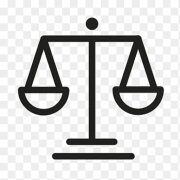Best Agriculture Lawyers in Norway
Share your needs with us, get contacted by law firms.
Free. Takes 2 min.
Or refine your search by selecting a city:
List of the best lawyers in Norway
About Agriculture Law in Norway
In Norway, agriculture plays a significant role in the economy and the livelihood of many people. The country's agriculture industry is known for its high standards of quality, sustainability, and environmental protection. Agriculture law in Norway encompasses regulations related to farming practices, land use, animal welfare, environmental protection, and more.
Why You May Need a Lawyer
There are various situations where individuals involved in agriculture in Norway might require legal assistance. Some common reasons include disputes over land use, livestock rights, contract negotiations with suppliers or buyers, environmental compliance issues, and navigating government regulations.
Local Laws Overview
The Norwegian legal framework for agriculture is governed by numerous laws and regulations. Some key aspects include the Land Act, Animal Welfare Act, Environmental Protection Act, Agricultural Agreement Act, and Food Act. These laws aim to ensure sustainable farming practices, protect animal welfare, and promote the overall development of the agricultural sector.
Frequently Asked Questions
1. Can foreigners own agricultural land in Norway?
Yes, foreign individuals or entities can own agricultural land in Norway, but certain restrictions and regulations apply.
2. What are the key environmental regulations that farmers must comply with?
Farmers in Norway must adhere to regulations related to water protection, waste management, pesticide use, and biodiversity conservation.
3. How are subsidies and support programs allocated to farmers in Norway?
The Norwegian government provides various subsidies and support programs to farmers based on criteria such as farm size, production type, and environmental practices.
4. What are the legal requirements for animal welfare in Norwegian agriculture?
There are strict regulations in place to ensure the proper treatment and welfare of animals in Norwegian agriculture, covering areas such as housing, feeding, and transportation.
5. How can farmers resolve disputes with suppliers or buyers?
Farmers facing disputes with suppliers or buyers can seek legal assistance to negotiate contracts, resolve conflicts, or pursue legal action if necessary.
6. Are there specific regulations for organic farming in Norway?
Yes, Norway has regulations governing organic farming practices and certification criteria that farmers must meet to label their products as organic.
7. What permits are required for starting a new agricultural business in Norway?
Individuals looking to start a new agricultural business in Norway may need permits related to land use, environmental impact assessment, and agricultural production.
8. How can farmers protect their intellectual property rights in Norway?
Farmers can protect their intellectual property rights related to agricultural inventions, trademarks, or plant varieties through legal mechanisms such as patents or trademarks.
9. Are there regulations on pesticide use in Norwegian agriculture?
Yes, Norway has strict regulations on pesticide use to protect the environment, public health, and biodiversity, with requirements for licensing, application, and monitoring.
10. What government agencies oversee agriculture regulation in Norway?
Key government agencies responsible for agriculture regulation in Norway include the Ministry of Agriculture and Food, the Norwegian Food Safety Authority, and the Norwegian Environment Agency.
Additional Resources
For more information and guidance on agriculture law in Norway, you can refer to the Norwegian Farmers' Union, the Norwegian Agricultural Advisory Service, and the Norwegian Environment Agency.
Next Steps
If you require legal assistance or advice regarding agriculture law in Norway, it is recommended to consult with a specialized agricultural lawyer who can provide tailored guidance and representation based on your specific needs and circumstances.
Lawzana helps you find the best lawyers and law firms in Norway through a curated and pre-screened list of qualified legal professionals. Our platform offers rankings and detailed profiles of attorneys and law firms, allowing you to compare based on practice areas, including Agriculture, experience, and client feedback.
Each profile includes a description of the firm's areas of practice, client reviews, team members and partners, year of establishment, spoken languages, office locations, contact information, social media presence, and any published articles or resources. Most firms on our platform speak English and are experienced in both local and international legal matters.
Get a quote from top-rated law firms in Norway — quickly, securely, and without unnecessary hassle.
Disclaimer:
The information provided on this page is for general informational purposes only and does not constitute legal advice. While we strive to ensure the accuracy and relevance of the content, legal information may change over time, and interpretations of the law can vary. You should always consult with a qualified legal professional for advice specific to your situation.
We disclaim all liability for actions taken or not taken based on the content of this page. If you believe any information is incorrect or outdated, please contact us, and we will review and update it where appropriate.
Browse agriculture law firms by city in Norway
Refine your search by selecting a city.
















